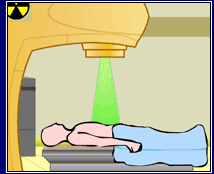
Over 10 million people in the U.S. — about one in 30 — are cancer survivors. This growing population reflects advances in cancer detection and treatment. But with the greater number of survivors comes an increasing number of people living long enough to experience more than one type of cancer in their lifetime. Overall, cancer survivors have a 14 percent higher risk of developing a new primary malignancy compared with the general population, according to a new NCI monograph entitled, New Malignancies among Cancer Survivors: SEER Cancer Registries, 1973-2000. The risk factors involved in the second cancer may be the same as those that led to the original tumor, such as smoking, excessive alcohol use, diet and nutrition, and genetic predisposition. For some people, however, the radiotherapy or chemotherapy received to treat the first cancer may be a contributing factor for their developing a completely new primary cancer.

 NCI NewsCenter
NCI NewsCenter NCI Budget Data
NCI Budget Data Visuals Online
Visuals Online NCI Fact Sheets
NCI Fact Sheets Understanding Cancer Series
Understanding Cancer Series